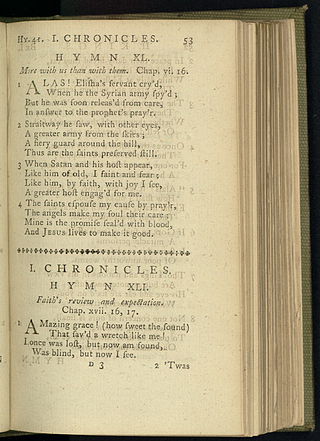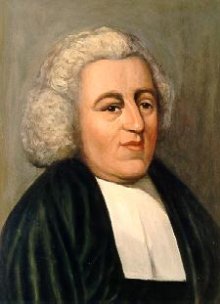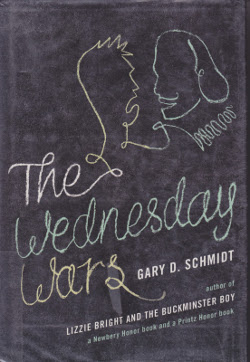Related Research Articles

"Amazing Grace" is a Christian hymn published in 1779 with words written in 1772 by English Anglican clergyman and poet John Newton (1725–1807). It is an immensely popular hymn, particularly in the United States, where it is used for both religious and secular purposes.

John Newton was an English evangelical Anglican cleric and slavery abolitionist. He had previously been a captain of slave ships and an investor in the slave trade. He served as a sailor in the Royal Navy and was himself enslaved for a time in West Africa. He is noted for being author of the hymns Amazing Grace and Glorious Things of Thee Are Spoken.

Ken Elton Kesey was an American novelist, essayist and countercultural figure. He considered himself a link between the Beat Generation of the 1950s and the hippies of the 1960s.

Calvin Johnson is an American guitarist, vocalist, songwriter, music producer, and disc jockey. Known for his uniquely deep and droning singing voice, Johnson was a founding member of the bands Cool Rays, Beat Happening, Dub Narcotic Sound System, The Go Team and The Halo Benders.

Gregory Keyes is an American writer of science fiction and fantasy who has written both original and media-related novels under both the names J. Gregory Keyes and Greg Keyes.
Robert Newton Peck was an American author who specialized in children's and young adult literature. His works include A Day No Pigs Would Die, Millie's Boy, and the Soup series.

Hiram Frederick Moody III is an American novelist and short story writer best known for the 1994 novel The Ice Storm, a chronicle of the dissolution of two suburban Connecticut families over Thanksgiving weekend in 1973, which brought him widespread acclaim, became a bestseller, and was made into the film The Ice Storm. Many of his works have been praised by fellow writers and critics alike.

Patricia Frances Grace is a New Zealand Māori writer of novels, short stories, and children's books. She began writing as a young adult, while working as a teacher. Her early short stories were published in magazines, leading to her becoming the first female Māori writer to publish a collection of short stories, Waiariki, in 1975. Her first novel, Mutuwhenua: The Moon Sleeps, followed in 1978.

Dale Peck is an American novelist, literary critic, and columnist. His 2009 novel, Sprout, won the Lambda Literary Award for LGBT Children's/Young Adult literature, and was a finalist for the Stonewall Book Award in the Children's and Young Adult Literature category.
The Evergreen Review is a U.S.-based literary magazine. Its publisher is John Oakes and its editor-in-chief is Dale Peck. The Evergreen Review was founded by Barney Rosset, publisher of Grove Press. It existed in print from 1957 until 1984, and was re-launched online in 1998, and again in 2017. Its lasting impact can be seen in the March–April 1960 issue, which included work by Albert Camus, Lawrence Ferlinghetti, Bertolt Brecht and Amiri Baraka, as well as Edward Albee's first play, The Zoo Story (1958). The Camus piece was a reprint of "Reflections on the Guillotine", first published in English in the Review in 1957 and reprinted on this occasion as the magazine's "contribution to the worldwide debate on the problem of capital punishment and, more specifically, the case of Caryl Whittier Chessman." Its commitment to the progressive side of the political spectrum has been consistent, with early stance for civil rights and against the Vietnam War. The image of Che Guevara that first appeared on the cover of its February 1968 issue, designed by Paul Davis and based on a photograph by Alberto Korda, became a popular symbol of resistance.
Dan Schneider is an American poet and critic of literature and film who runs the criticism and literary website Cosmoetica.

Invasion America is a 1998 American animated science fiction series that aired in the prime time lineup on The WB. Produced by DreamWorks Television Animation, the series was created by Steven Spielberg and Harve Bennett, who also served as executive producers.

A Day No Pigs Would Die is a semi-autobiographical novel by Robert Newton Peck about Rob Peck, a boy coming of age in rural Vermont on an impoverished farm. Originally published in 1972, it is one of the first books to be categorized as young adult fiction, in addition to being Peck's first novel; the sequel, A Part of the Sky, was published in 1994.

James Robert Baker was an American author of sharply satirical, predominantly gay-themed transgressional fiction. A native Californian, his work is set almost entirely in Southern California. After graduating from UCLA, he began his career as a screenwriter, but became disillusioned and started writing novels instead. Though he garnered fame for his books Fuel-Injected Dreams and Boy Wonder, after the controversy surrounding publication of his novel, Tim and Pete, he faced increasing difficulty having his work published. According to his life partner, this was a contributing factor in his suicide.

The Snows of Kilimanjaro is a 1952 American Technicolor romantic adventure film directed by Henry King from a screenplay by Casey Robinson, based on the 1936 short story of the same name by Ernest Hemingway. It stars Gregory Peck as Harry Street, Susan Hayward as Helen, and Ava Gardner as Cynthia Green. The film's ending does not mirror that of the short story.

The Wednesday Wars is a 2007 young adult historical fiction novel written by Gary D. Schmidt, the author of Lizzie Bright and the Buckminster Boy. The novel is set in suburban Long Island during the 1967–68 school year. The Vietnam War is an important backdrop for the novel. It was given a Newbery Honor medal in 2008, and was also nominated for the Rebecca Caudill Young Reader's Book Award in 2010.
Philip Graham is an American author, professor, and editor. He is one of the founders, and the current editor-at-large, of the literary/arts journal, Ninth Letter, which won the MLA’s Best New Literary Journal Award in 2005. He is a professor emeritus in the Creative Writing Program at the University of Illinois at Urbana-Champaign, where he received three campus-wide teaching awards. He has also taught in the low-residency MFA program of the Vermont College of Fine Arts. Additionally, he is the recipient of a National Endowment for the Arts Creative Writing Fellowship, a grant from the National Endowment for the Humanities, two Illinois Arts Council grants, and the William Peden Prize in Fiction from The Missouri Review, as well as fellowship residencies at the MacDowell Colony and Yaddo artists' colony.

Reed Farrel Coleman is an American writer of crime fiction and a poet.
Katharine DuPre Lumpkin was an American writer and sociologist from Macon, Georgia. She is a member of both the Georgia Writers Hall of Fame and the Georgia Women of Achievement.
John Newton is a New Zealand poet, novelist, literary critic and musician. His poetry appears in several major New Zealand anthologies, he has written books about literary history and art, and his first novel was published in October 2020. He was the 2020 Robert Burns Fellow at the University of Otago.
References
- 1 2 "Baker, Calvin 1972-", Encyclopedia.com.
- ↑ "Calvin Baker" [ dead link ], Picador Guest Professorship for Literature, 2013
- 1 2 CV, Calvin Baker.
- ↑ "PEN American Center - Authors". Archived from the original on June 7, 2011. Retrieved March 4, 2010.
- ↑ "Praise for Grace".
- ↑ "The Silence That Greeted Dominion", Maud Newton, December 28, 2006.
- ↑ Reid, Calvin, "Counterculture Quarterly 'Evergreen Review' Revived Online", Publishers Weekly , March 1, 2017.
- ↑ "About", Evergreen Review.